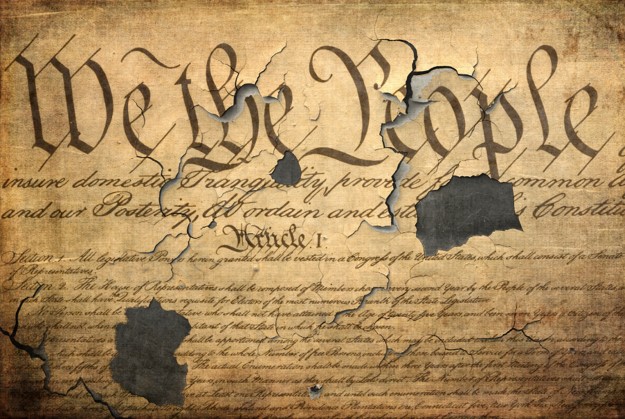Federal Ruling on Texas Drag Performance Ban: A Landmark Decision for Free Speech and LGBTQ+ Rights
In a significant legal development, a federal judge in Texas has declared the state’s ban on drag performances unconstitutional, citing violations of the First Amendment. The ruling comes amidst intense national discussions pertaining to free speech rights and the protection of LGBTQ+ communities. The legislation, enacted earlier this year, aimed to prohibit “sexually explicit” performances in public settings, especially within environments accessible to minors. However, the law’s specific targeting of drag shows raised concerns regarding freedom of artistic expression.
The Legal Challenge Against the Ban
The case was initiated by a coalition comprising various LGBTQ+ advocacy groups, drag performers, and venue operators. They collectively argued that the legislation unjustly singled out their community, thereby infringing on their rights to express themselves artistically. The plaintiffs maintained that the ban negatively affected their cultural expression and the professional lives of drag performers across Texas. Judge Michael Carter’s ruling stated that the law’s vague language and overly broad stipulations impinge on artistic freedoms protected under the First Amendment, stating emphatically that “the state may not use its power to suppress viewpoints or artistic forms that some find objectionable.”
Implications of the Ruling
This judicial decision has been hailed by advocacy organizations as a landmark victory for civil liberties, reinforcing the notion that drag constitutes a valid and protected form of art. One spokesperson from a plaintiff group remarked, “This ruling affirms that drag is an art form and a vital part of our culture that deserves the same protections as any other form of expression.” This perspective brings to light the importance of diverse artistic expressions within the broader conversation surrounding freedom of speech.
Response from Texas Officials
In reaction to the judge’s ruling, Texas officials, including Governor Greg Abbott, have criticized the decision. Governor Abbott expressed intentions to appeal the ruling, arguing that it undermines efforts aimed at protecting children and preserving community standards. His statement indicates a determination to push the matter through higher courts, emphasizing that this legal battle is far from over. Such responses illustrate the contentious political landscape in which this ruling resides.
The National Context of LGBTQ+ Laws
This ruling occurs within a broader spectrum of legislative efforts targeting LGBTQ+ individuals and performances across the United States. Similar bans and regulations have been introduced in various states, leading critics to argue that such measures form part of a larger strategy to marginalize LGBTQ+ communities. Conversely, supporters of these laws often frame their arguments around protecting children from potentially harmful or “inappropriate” content, indicating a sharp divide in public opinion regarding these issues.
Potential for Supreme Court Involvement
Legal experts are speculating that this case could escalate to the U.S. Supreme Court, given its implications for First Amendment rights and the ongoing struggle for LGBTQ+ equality. The ruling in Texas could set a statewide precedent that encourages similar challenges elsewhere, thereby shaping the legal landscape for LGBTQ+ rights across the nation. The significance of the legal fight in Texas may thus resonate well beyond state lines, stirring public debate on fundamental issues of identity and expression.
Conclusion
In summation, the federal ruling against Texas’s drag performance ban signifies a crucial moment in the ongoing discourse surrounding free speech rights and LGBTQ+ advocacy. As the legal tussle continues, it remains clear that discussions surrounding artistic expression, public morality, and community standards will linger, shaping societal norms and legal interpretations in the years to come. The ruling not only underscores the importance of robust defenses against discriminatory legislation but also emphasizes the vital role that artistic expression plays in advocating for equality and acceptance.
FAQs
What was the Texas drag performance ban?
The Texas drag performance ban was a law enacted earlier this year that prohibited “sexually explicit” performances in public areas, especially where minors might be present, with specific language targeting drag shows.
Why was the law deemed unconstitutional?
The law was ruled unconstitutional by Judge Michael Carter on the grounds that it was overly broad and vague, which unconstitutionally restricted artistic expression protected by the First Amendment.
Who challenged the law?
A coalition of LGBTQ+ advocacy groups, drag performers, and venue owners challenged the law, arguing it unfairly targeted their community and stifled their expression.
What are the potential next steps after this ruling?
Texas officials, including Governor Abbott, have expressed intentions to appeal the ruling, indicating that the legal battle may escalate to higher courts, possibly reaching the U.S. Supreme Court.
How does this ruling affect the broader national context of LGBTQ+ rights?
The ruling adds another chapter to the ongoing national debate regarding LGBTQ+ rights, giving momentum to similar cases while highlighting the divide in public opinion regarding the regulation of drag performances and LGBTQ+ expressions.

